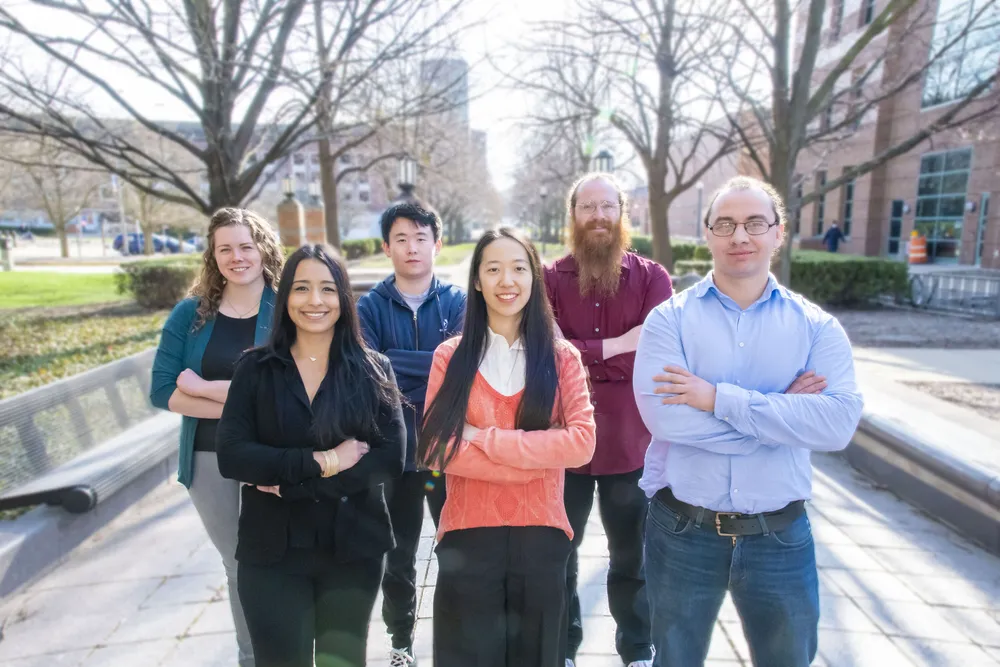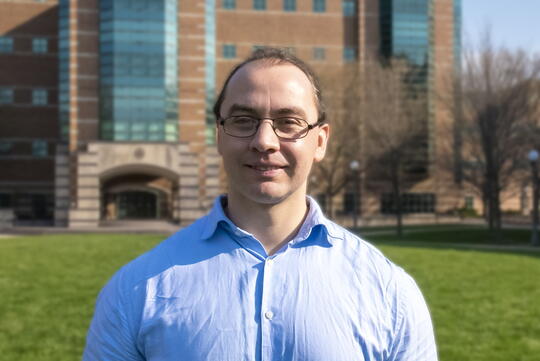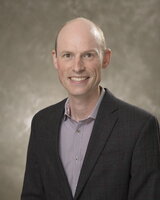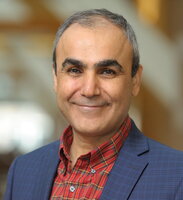
In fall 2023, the Beckman Institute will welcome six researchers to its Postdoctoral Fellows Program, including two fellows in MCB labs. With research projects encompassing cancer research, early childhood development, advanced medical imaging technology, and the intricacies of chemical catalysis, the fellows share a commitment to interdisciplinary discovery.
The Cancer Center at Illinois – Beckman Institute Postdoctoral Fellowship, which supports projects that bridge engineering and basic cancer sciences, is new in 2023. Fellows work with faculty mentors from CCIL and the Beckman Institute to develop transdisciplinary skills that support their career development.
“I'm excited to work at the forefront of biological computation and push the limit of what is currently possible! I couldn't imagine a better place to do my research than in the Beckman community,” said Zane Thornburg, one of the fellowship’s two inaugural recipients.
Fellows across all three awards are selected in accordance with the core values of the Beckman Institute: excellence, collaboration, integrity, transdisciplinarity, exploration, and diversity. Read on to learn more about the 2023 awardees.
Cancer Center at Illinois – Beckman Institute Postdoctoral Fellows
Alejandro De la Cadena: Targeting triple-negative breast cancer

De la Cadena earned his Ph.D. in chemistry and earth sciences from Friedrich Schiller University Jena in 2018.
His research is focused on understanding triple-negative breast cancer, a rare and aggressive form that emerges in less than 20% of cases and is notoriously difficult to target and treat. As a CCIL – Beckman Institute Postdoctoral Fellow, he will use advanced microscopy techniques to scrutinize the tumor microenvironment; specifically, the tumor-suppressing properties of a nuclear receptor called TLX. Learning more about how the TLX receptor works will help inform future investigations focused on targeting the cancer with drugs and therapies, while also contributing valuable medical imaging tools to be used in future diagnostics.
His project, “Mapping the phenotypic signature of the nuclear receptor TLX in TNBC,” will be conducted in collaboration with Beckman and CCIL researchers Stephen Boppart, a professor of electrical and computer engineering; Erik Nelson, an associate professor of molecular and integrative physiology; and Rohit Bhargava, the Founder Professor of Bioengineering and the director of the CCIL.
Zane Thornburg: Generating whole-cell simulations of yeast

Thornburg expects to earn his Ph.D. in physical chemistry from UIUC in fall 2023.
There’s no cell like whole cell. Whole-cell modeling, the practice of simulating an entire cell at once, provides researchers with the comprehensive information needed to make predictions about all aspects of a cell’s composition and behavior. Since simulating a complete human cell is quite complicated, many researchers study yeast cells, which are similar to human cells because they carry DNA in a nucleus. As a CCIL – Beckman Institute Postdoctoral Fellow, Thornburg will use whole-cell modeling to simulate a population of yeast cells, investigating how genetic modifications and environmental changes might cause variations between cells of the same population. By accurately simulating how the cells move and change in the face of environmental stimuli, the model will generate valuable information about yeast cells as well as insights about modelling that will allow the technology itself to advance.
Thornburg’s project, “3D whole-cell models of yeast and quantifying cell-to-cell variations,” will be conducted in collaboration with Beckman and CCIL researchers Emad Tajkhorshid, a professor of biochemistry; and Rohit Bhargava, the Founder Professor of Bioengineering and the director of the CCIL.

